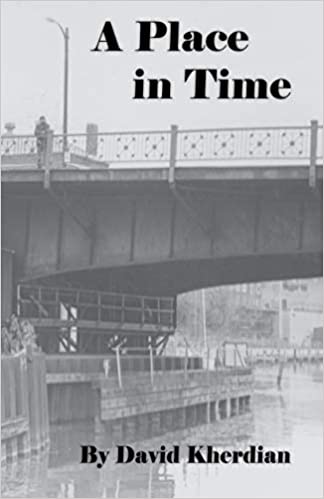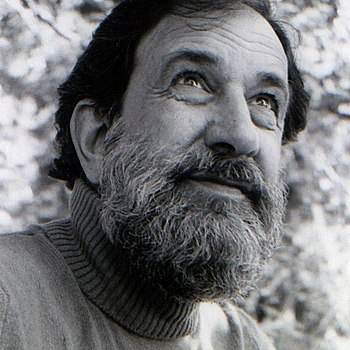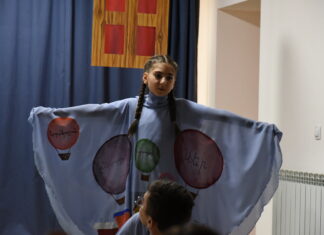David Kherdian’s hometown, Racine, Wis., is a “desolate and broken town,” an abandoned Midwestern city of factories, mines and railroad tracks. Where there once was togetherness and community, there now is division and discrimination. The itinerant workers, alive with their laughter and chatter, have been replaced by the “new barren life” of businesses “where the only payment was money.”

The city that comes to life in Kherdian’s recent memoir, A Place in Time: A 20th Century Memoir (Cascade Press, 2020), is also another place in another time. In the sequence of poems and companion prose pieces Racine emerges as an idyllic place, a mythical place almost, that transcends all places, in all times. Its amazing blue lake, a river that winds through the city, and its numerous parks nurture dreams and make it possible to believe in the promise of a different life. Kherdian’s own State Street is “an artery of goodness for its entire length.”
The poems assembled in the memoir evoke a changing city. A past of freedom and laughter has transformed into a present where machines have invaded the town’s closeness to nature.
Supermarkets have replaced the small ethnic stores in which things did not come “wrapped and labeled and watched over by a clerk.” These stores were “not businesses at all,” but real places where “we could talk” about “all the real things we cared most about.” While there is no judgment here, Kherdian is very clear about the values worth preserving. Respect for family and home, communion with nature, tolerance for differences and forgiveness are not forgotten, even if lost.
There is, in fact, no bitterness over the loss. Kherdian’s is a most comforting way to think about a place that, while destroyed and no longer “eager and alive and free,” still gives one all one needs from life. His is a quiet celebration of the ongoing life of the city. No matter how “difficult and demanding,” life can actually be good. Finding real peace is possible. And if there is any yearning, it is only for more of the same.
Which is not to say that there is no underlying sadness in Kherdian’s ideology. His memoir ends with the lines, “How sad to be a human being, how lonely/and difficult.” Even if these lines are written in memory of a dead person — “In Memoriam Mike Kaiserlian” — asserting sadness as part of the human condition makes the idea of “silent acceptance and gratitude” more palatable. As Kherdian well knows, sadness is “simply there,” and going deeper and deeper into the inner world, as he does, means reaching “something much much deeper than catching perch in a lake on a line.”








